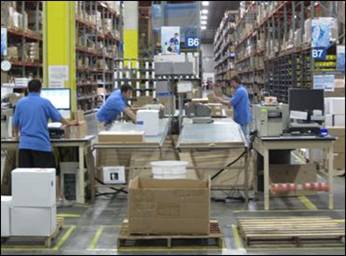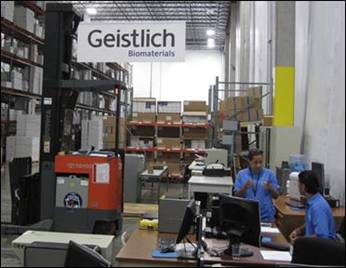In a recent meeting with Menlo customer David Swanson, general manager of Geistlich Biomaterials, Dental Division (supplier of dental bone and tissue regeneration materials for prosthetic tooth implants) and Morgan Anderson, senior director of operations from Menlo, the following Healthcare delivery system inefficiencies were highlighted:
- Materials inventories are increasing, cycles times are growing, and manufacturers’ margins are shrinking.
- Hospitals need to move to an end-to-end supply chain system mindset. There is a general lack of end-to-end supply chain understanding within an industry with many operational silos.
- The “mental model” needs to be changed from supply chain meaning only logistics to meaning end-to-end value network and attracting C-level decision makers.
- Historically there has been strong reluctance to change within the industry. Third-party logistics providers (3PLs) have gained some ground by starting small and growing through operational results.
- Patient outcome is key in the Affordable Healthcare Act and supply chains will need to work from the patient backwards.
Menlo is working directly with Healthcare manufacturers such as Geistlich to improve profit margins and speed up supply chains in the following ways:
- Reduce distributors’ role in product ownership to improve hospital and manufacturer margins and lower inventory carrying cost.
- Align doctors and hospitals for product purchasing and greater buying power.
- Help health systems enforce contract pricing provided by National GPOs.
- Provide the operational expertise for different types of healthcare kits to be delivered directly to a patient bedside.
- Implemented a Healthcare Centers of Excellence approach starting in Eersel, Netherlands to build specific operational capabilities for Healthcare customers.
The next two sections of this report give background information Menlo’s relationship with Geistlich and our detailed operations review of Menlo’s Dayton, NJ Healthcare value-added warehousing and distribution operation below.
Geistlich – Menlo Relationship Startup
Geistlich Biomaterials began working with Menlo in 2012 in an effort to streamline its customer supply chain by transitioning its distributor centric distribution model to a 3PL model in order to improve service performance levels, inventory visibility, and lower overall distribution costs. Menlo designed a new domestic U.S. supply chain for Geistlich centralized at its multi-client Dayton, NJ value-added warehousing and distribution operation.
Operations Review: Dayton, NJ Healthcare Value-Added Warehousing & Distribution Operation
Menlo’s 250,000 square foot Dayton, NJ warehouse operation is partitioned into Healthcare and non-Healthcare customer operations. The Healthcare operation runs from 8 A.M. to 8 P.M. five days a week and is housed in 90,000 square feet of space. There is 70,000 square feet of ambient warehouse space and 20,000 square feet is cordoned off in a modular temperature controlled (at 58-86 degrees Fahrenheit) section of warehouse.
The Healthcare operation has a warehouse staff of 40 and fulfills approximately 620 orders per day from over 4,000 different SKUs (stock keeping units) of product inventory for two customers. Most items are each picked, packed, and shipped. Based upon its performance metrics and level of process improvements, the operation is about to be awarded Menlo’s Bronze Lean Certification.
Special logistics requirements for the Dayton Healthcare operation include lot control, expiry date management, temperature and humidity controlled storage, and inside deliveries to hospitals and offices.
For one of its Healthcare customers, products are received from manufacturing operations in New Jersey, Germany, France, and Sweden. The Dayton operation manages finished goods inventories of products including ventilators and cardiovascular monitors, operating room light fixtures, surgical patches and materials, and many lines of spare/service parts.





